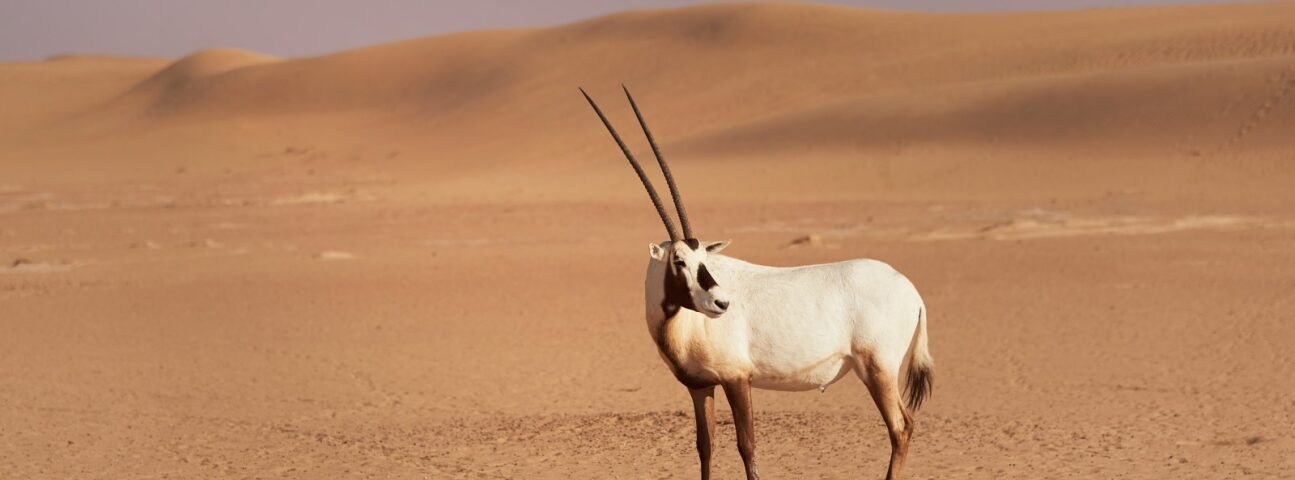Dubai is a metropolis with magnificent edifices, extravagant lifestyles, and striking natural
landscapes. The enormous desert is teeming with diverse wildlife, and a desert safari allows one to examine some of these distinctive species inhabiting such a raw setting. This article will delve into the riveting wildlife on a desert safari Dubai , the critical value of a Dubai desert ecosystem, and the finest practices to dutifully watch its wildlife, thus ensuring a treasured encounter that is also accountable.
Dubai Desert’s Wildlife: Special Species to Meet
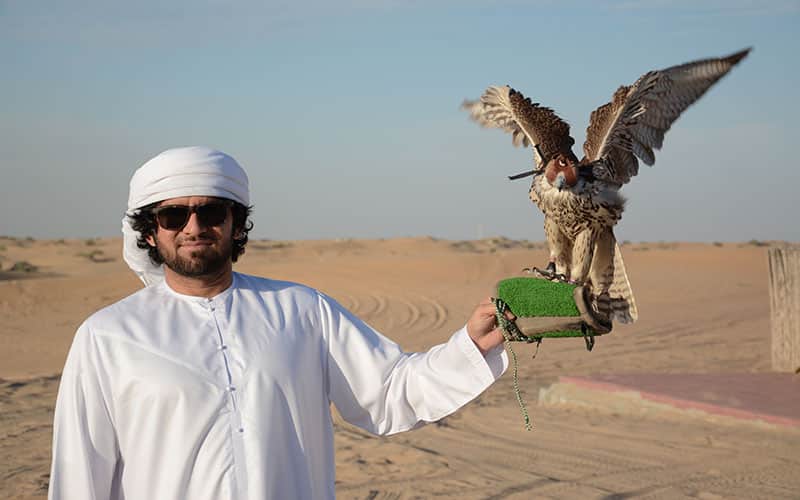
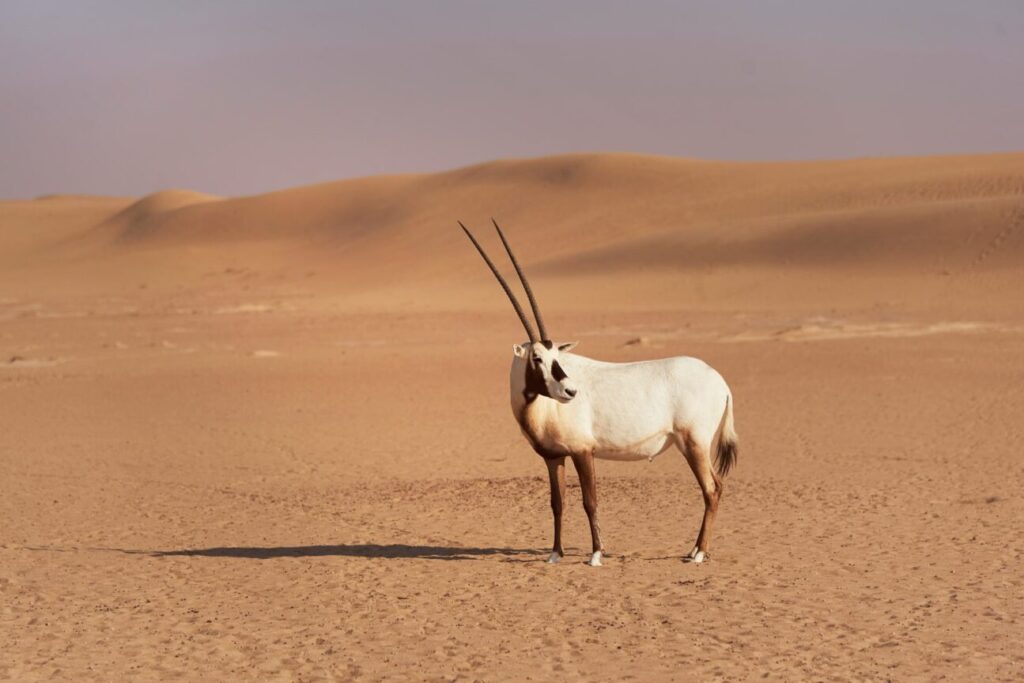
The Arabian oryx is a flag bearer for conservation success in Dubai’s desert. Previously thought to be wiped out in the wild then reintroduced, they now ramble freely. Check out these charming Arabian oryx in Dubai desert whose glossy white coats and elongated, straight horns make them noticeable amongst the dunes, where they graze and meander.
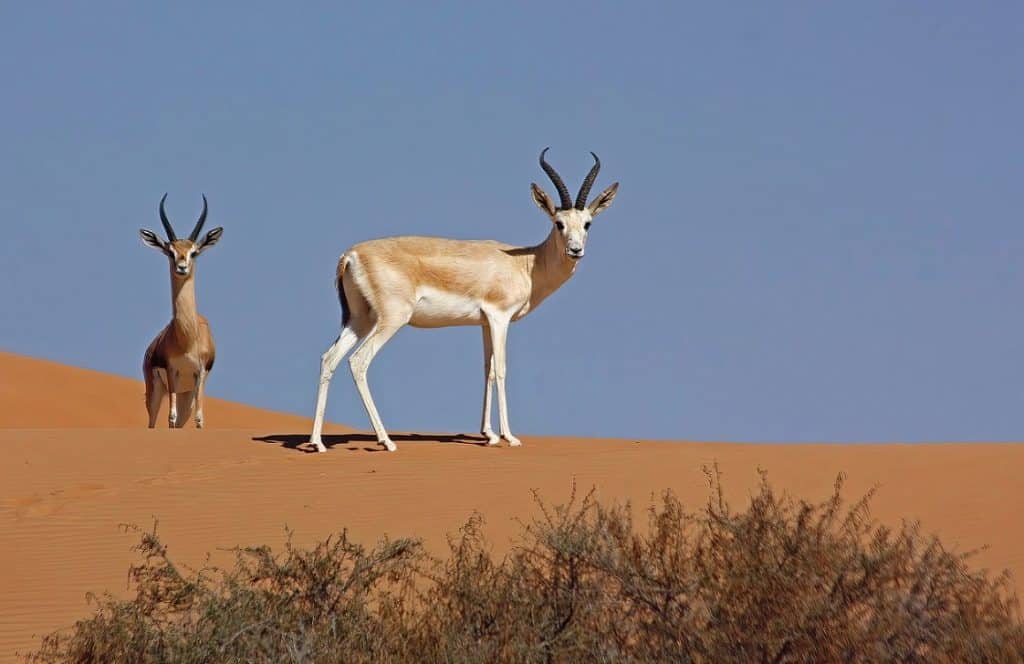
Among the Dubai desert’s inhabitants, agile gazelles, ranging from the Arabian gazelle to the Dorcas gazelle, are known to be hardy. Their full-size eyes and ears aid in detecting predators, and their amazing pace and nimbleness help them to flee danger. Often discovered in groups, gazelles in Dubai Desert graze on thin vegetation or across the incredible sand dunes.
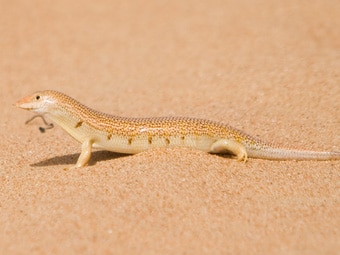
Well adapted to the Dubai desert’s enormously harsh milieu are reptiles, such as sand vipers, desert monitors, and lizards. The exquisite Dubai desert reptiles uphold their body temperatures high within the heat. Sand vipers are noxious but tricky to spot, whereas desert monitors are typically visible hunting prey or sunbathing.
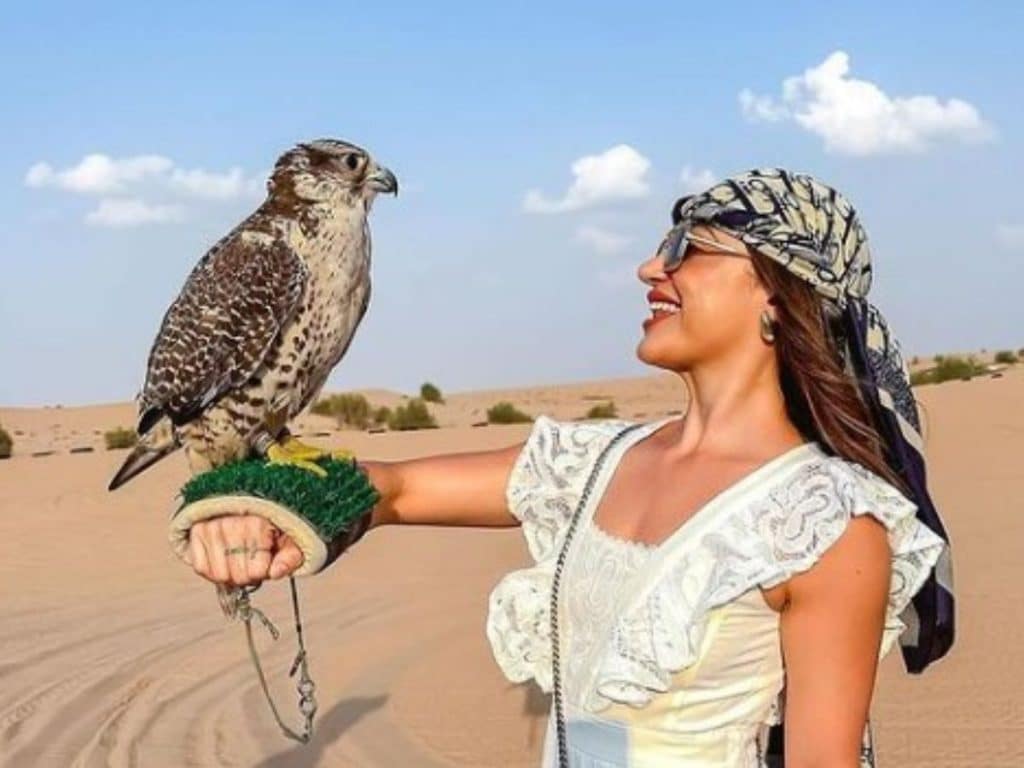
Dubai’s Desert boasts majestic birds of prey, from desert eagles and falcons to buzzards. They are thorough hunters, relying on their sharp vision and incredible hunting skills to survive in this vast desert. Falcon shows in Dubai are ethnically intrinsic as they are an emblem of graciousness and ecstasy during a Dubai desert safari.
Understanding Desert Ecosystem with its Imperative Part in Nurturing Biodiversity
Dubai’s pristine sandy deserts are characterized by refined sand dunes, interspersed with rock outcrops and gravel plains. The ecosystems here nurture plants ranging from the drought-adapted shrubs to grasses, fortifying animals from gazelle to oryx. Nature conservation in Dubai Safari, such an arid ecosystem, would depend on how flora-fauna co-exist.
Desert inhabiting animals like the Arabian oryx and gazelles have progressed extraordinary modes of restraining water loss. These include wringing moisture from prey or plants and physiologically adapting to spend extended time devoid of direct water exposure, highlighting the persistence of desert safari wildlife.
Animals, to be more specific, Arabian oryx and desert reptiles, have tailored to their setting by amending their bodies so that they can adjust internal temperatures by exhibiting either a whitish coat or actions in burrowing. All these endeavors are made to survive the intense conditions during burning daytime and sporadic chilling nights.
Shaded areas, burrows, and tall grasses present microhabitats in deserts that permit gazelles and reptiles to refuge themselves from human/predators attacks or even sunburns. They can keep themselves in these refuges from the sun’s fierce heat and the perilous menace of another one.
Thin desert vegetation, counting acacia trees to desert shrubs, feed herbivores that uphold predators from sand vipers to falcons, opening rooms for a proportional food web.
Desert organisms have adapted to conserve energy, with reptiles as main examples of such species. They count on sunlight for getting warmed, and they spend utmost time preserving energy.
This resilience illustrates that Dubai desert wildlife, such as multifarious species from gazelles to reptiles, has modified its reproductive approaches to the setting,
whereby some animals replicate less but have elevated survival rates considering their offspring.
The sand viper, some species of which exist in sandy deserts, is better camouflaged against the sand than against other colors, reducing its exposure to both predators and prey and facilitating it to hunt or evade being hunted exemplarily.
Ethical Wildlife Viewing : Top Practices
Some suitable wildlife viewing etiquette for the desert includes :
- Upholding Decent Safe Distance – Adopt a reverential approach to such animals, by upholding a decent distance such that they obtain pasture naturally. Steer clear of feeding/touching them
- Maintain Calmness and Quiet – Diminish sound and jarring movement. Conversations should be in a whisper, the camera used should evade flashes, and the use of noisy sound should be avoided, as it perturbs the wildlife.
- Adhere to Safety Regulations – Stick strictly to the safari operator’s guidelines. Just as it is being done for the animals and their surroundings, they also want their clients to have a protected but reverential experience.
- Honor Nature – The desert is fragile; make trails, keep away from dropping any litter, and refrain from impacting the vegetation & animals so as to keep it gorgeous.
- Promote Sustainability Efforts – Bestow to conservation charities, partake in eco-friendly travel activities in Dubai desert or encounter green safaris to help defend Dubai’s desert wildlife. These initiatives will contribute to preserving the species.
- Utilize Binoculars – Observing wildlife is amongst the much-adored desert safari activities for kids. Here the only other means of adjoining encountering animals for enhanced surveillance is to incorporate binoculars/cameras equipped with perfect zoom lenses to take pleasure in the sight from afar.
Dubai’s deserts are brimming with wildlife, offering a peep into the resilience of life in intense conditions. From striking Arabian oryx to agile gazelles and elusive reptiles, animals in Dubai desert are uniquely tailored to survive. Dubai’s desert safari showcases the amazing splendor as well as assortment in this ecosystem. In short, there are scores of reasons to book a Dubai desert safari experience.
Frequently Asked Questions (FAQs):
Q1. Is encountering Dubai desert safari’s wildlife safe?
Yes, this is typically safe but it is suggestive to stick on to experienced guides coupled with paying reverence to the magnificent natural habitat.
Q2. Can I contribute towards the desert safari’s conservation efforts?
Yes, you may by,
- Spreading awareness pertaining to conserving the ecosystems and distinctive wildlife of the region
- Adhering stringently to conservation strategies
- Backing green tourism practices
Q3. When should I go to observe the safari wildlife?
Opt for a cooler season spanning October until April as animals remain highly active. Besides, the climate is friendly for all safari-goers.
Q4. Is animal interaction likely?
For the animals well-being as well as safety, do uphold a decent distance from the desert wildlife. The etiquette pertaining to wildlife observation lays emphasis on not touching, disturbing, or feeding the animals.
Q5. Name the animals that I can observe in Dubai’s desert safari
- Sand vipers
- Falcons
- Gazelles
- Desert Eagles
- Arabian oryx
